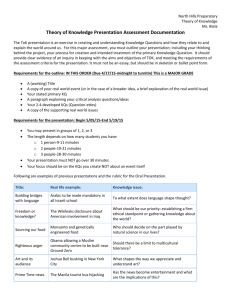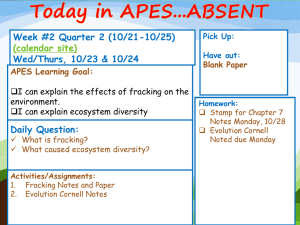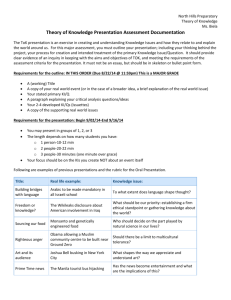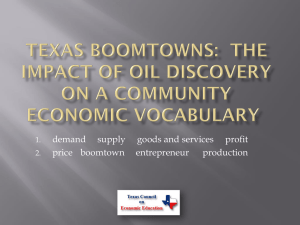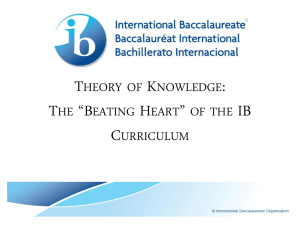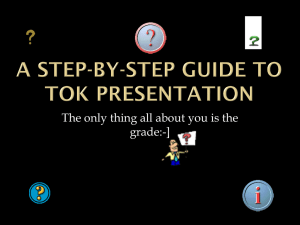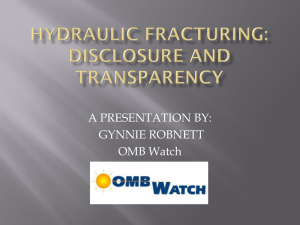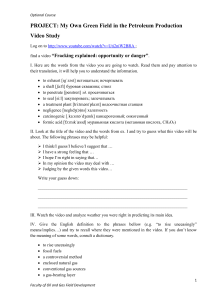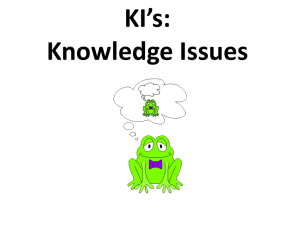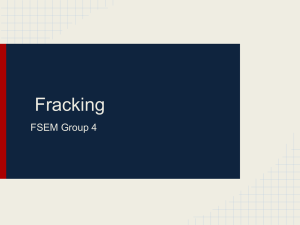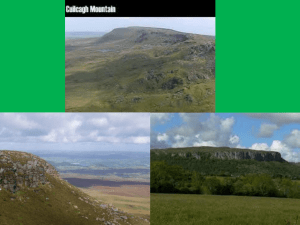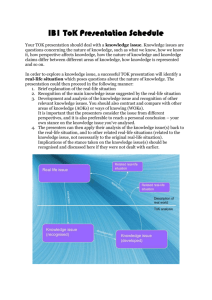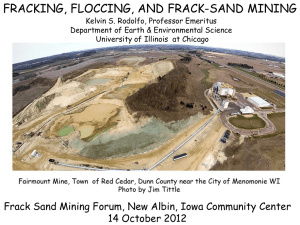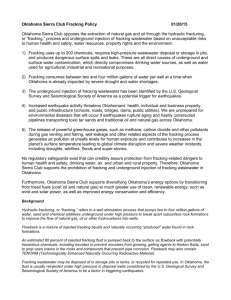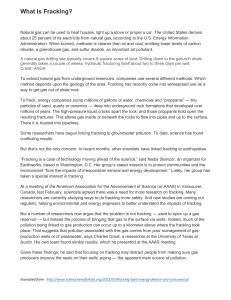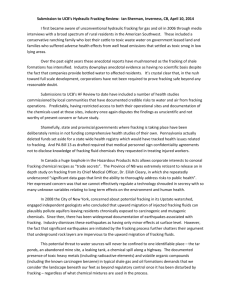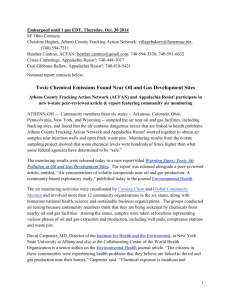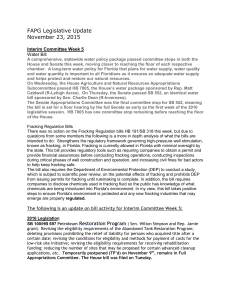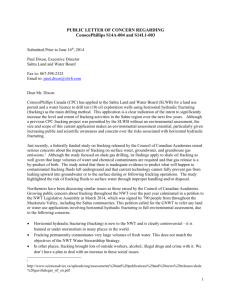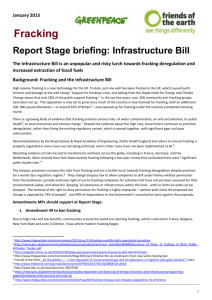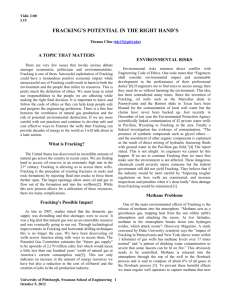Click
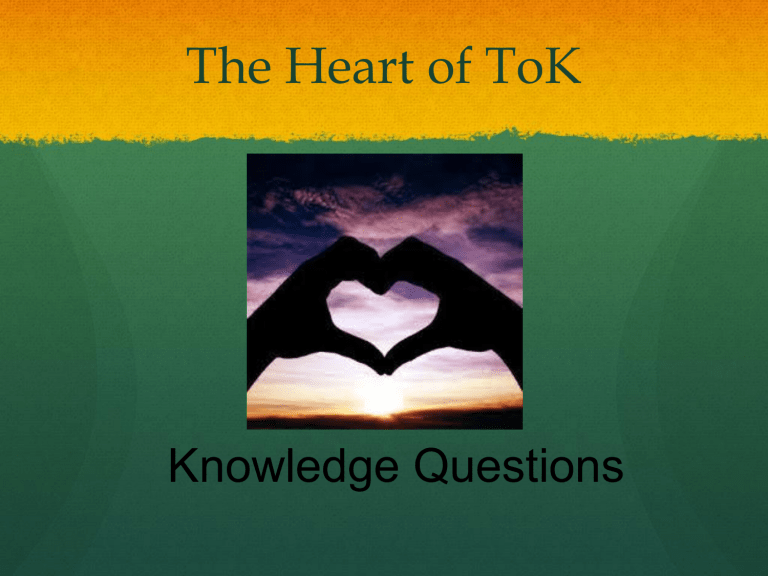
The Heart of ToK
Knowledge Questions
Knowledge Questions
TOK is primarily concerned with knowledge questions.
This phrase is used often in describing what is seen in a good
TOK presentation or a good TOK essay.
An essay or presentation that does not identify and treat a knowledge question has missed the point.
Instead of focusing on specific content, knowledge questions focus on how knowledge is constructed and evaluated.
In this sense, knowledge questions are a little different from many of the questions dealt with in the subject classrooms.
You can find knowledge questions underlying almost any issue.
They are sometimes difficult to formulate precisely but they often lurk underneath popular and controversial subjects.
It is a very useful exercise to try to tease out knowledge questions underlying articles in the media.
Here are two examples of topics that have been discussed in newspaper articles and possible knowledge questions associated with the topic.
Knowledge Questions Have These Characteristics
•open question
•about knowledge
•general
Example 1: The placebo effect and its impact on the medical profession
• Not a knowledge question: “How does the placebo effect work?” An answer to this might involve a technical explanation in psychology.
• A good knowledge question: “How could we establish that X is an ‘active ingredient’ in causing
Y?”
This question is actually a rather general one about how we can know about causal links. It is a classic knowledge question.
Example 2: Future Population Growth in Africa
• Not a knowledge question: “How can we predict future population growth in Africa?”
This is not a knowledge question because it is a technical question within the discipline of population studies.
• Good knowledge question: “How can a mathematical model give us knowledge even if it does not yield accurate predictions?” This is now sufficiently general and explores the purpose and nature of mathematical modelling .
Examples of Knowledge Questions
• what counts as evidence for X?
• what makes a good explanation in subject Y?
• how do we judge which is the best model of Z?
• how can we be sure of W?
• what does theory T mean in the real world?
• how do we know whether it is right to do S?
WHAT THE FRACK?
Real-life situation:
New Brunswick fracking protests
Links to TOK:
Science
History
Human sciences
Indigenous knowledge systems
Ethics
Central Knowledge
Question:
How can we measure the value of natural resources?
Developed KQs
(three WoKs or AoKs)
1. How is it determined that economics are socially beneficial?
2. Given the scientific method, can value be determined?
3. Could it be claimed that indigenous knowledge systems are more valuable than tangible resources?
Apply ToK to Developed
Knowledge Questions
1.What tools do economists use to measure social value?
Are there problems/ flaws/weaknesses with these tools?
What have the results been obtained for NB First Nations?
2.What has science told us about fracking in NB?
Are there any problems/flaws/weaknesses with the way science obtained its results.
Are we able to determines the harms/benefits using science?
3. What moral or political beliefs do we have that will allow us to determine who has the greater right to use this resource or not?
Other real-life fracking situations:
Earthquakes in Oklahoma
Other real-life fracking situations:
Water issues
Other real-life fracking situations:
Treaty rights
Other real-life fracking situations:
Religious views of land
Other real-life fracking situations:
The role of ethics in government and business policies
Other real-life fracking situations:
Health and social issues

